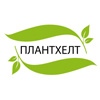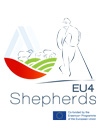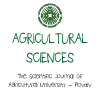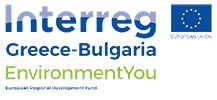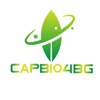Centre for Cleantech and Biomass Resource Efficiency
Project: Advanced cleantech studies for the enhancement of the research and innovation capacity of the Plovdiv Agricultural University (AU) (ELEMENT)
Duration: 60 months
Start Date: 01 Jan 2025
Context and overall objectives
The ELEMENT project is a strategic initiative designed to transform the Agricultural University (AU) of Plovdiv into a leading European hub for research and innovation in cleantech and biomass resource efficiency. Set against the backdrop of Bulgaria's persistent underperformance in research excellence and international collaboration, the project aims to address systemic challenges by fostering structural change, advancing scientific capacity, and aligning with European Union priorities such as the Green Deal and the circular economy. At its core, the project seeks to establish a high-level ERA Chair and a dedicated research team to spearhead advancements in the sustainable use of biogenic resources. This initiative focuses on developing cutting-edge technologies and processes that reduce environmental impact, promote the efficient use of biomass, and facilitate the transition from fossil-based to bio-based inputs in agriculture and industry. Through innovations in recycled fertilisers, microplastic monitoring, and bio-based energy recovery, the research agenda directly responds to urgent global and regional challenges, including soil degradation, resource scarcity, and pollution.
The overarching objectives are fourfold: to build scientific excellence through the creation of a dynamic and multidisciplinary research team; to initiate institutional reforms that improve governance, research management, and infrastructure utilisation; to foster knowledge transfer and capacity-building within and beyond the university; and to strengthen collaboration between academia, industry, and policy stakeholders both nationally and across the European Research Area. The project is expected to have a transformative impact. It will substantially raise the scientific profile and competitiveness of AU by embedding a culture of research excellence and international openness. By implementing structural changes, improving talent management, and increasing the university's participation in European research networks, the project aims to enhance AU's ability to attract funding, forge partnerships, and deliver high-impact research. Furthermore, it will empower young scientists through training, mentorship, and involvement in cutting-edge research, creating a sustainable pipeline of talent and expertise.
The ELEMENT project is expected to deliver impactful results with strong potential for uptake in both scientific and practical domains. Its focus on resource-efficient fertilisers, advanced microplastic monitoring, and the environmental dynamics of recycled materials makes it a key contributor to sustainable agriculture and circular economy goals. These results align with EU policy priorities and address critical challenges such as nutrient dependency, plastic pollution, and soil health. More than a research initiative, ELEMENT also serves as a platform for knowledge transfer and stakeholder collaboration. A key partnership has been established with the Trakia Economic Zone (TEZ), where cleantech and recycling are emerging themes. ELEMENT plays a pioneering role in introducing these topics and creating opportunities for industrial-scale demonstration. Beyond TEZ, the project engages agricultural producers, municipalities, and industry actors to support cleantech value chains. This broad, multi-stakeholder approach ensures relevance, adaptability, and impact across regional and European levels.
The ELEMENT project holds strong policy relevance, particularly in the context of the European Union's priorities for climate action, the circular economy, sustainable agriculture, and innovation-led growth. By advancing scientific research and technological development in cleantech and biomass resource efficiency, the project generates evidence-based outcomes that can directly support the formulation, revision, and implementation of EU policy measures across several domains. A core contribution of the project lies in its alignment with the European Green Deal, specifically the Farm to Fork Strategy, the Circular Economy Action Plan, and the Soil Health and Biodiversity strategies. The development of innovative, phosphorus-rich organic fertilisers from locally available biowaste and wastewater treatment by-products addresses the urgent need to reduce Europe's dependency on imported mineral fertilisers—an issue made even more critical by current geopolitical and supply chain challenges. This work directly supports EU efforts to ensure strategic autonomy in agricultural inputs, promote the safe use of recycled materials, and reduce environmental degradation. The scientific data and methodologies produced by ELEMENT—such as assessments of nutrient availability, pollutant levels, and fertiliser equivalence—offer valuable input for updating fertiliser regulations and environmental quality standards. The project also supports implementation of the EU Plastics Strategy and Zero Pollution Action Plan by addressing microplastic contamination in agriculture. Through the development of novel, AI-driven technologies for detecting microplastics in recycled fertilisers and soils, ELEMENT contributes to evidence-based risk assessment and monitoring protocols. This technology, once validated, can be proposed for integration into EU-wide guidelines and regulatory frameworks for organic waste recycling and agricultural land use. Furthermore, research on the mobility of microplastics in soil and their uptake by plants provides critical data that can inform EU legislative reviews, including the future scope of the REACH Regulation and amendments to existing directives on waste and soil protection. Hence, the ELEMENT project contributes both scientific knowledge and practical solutions that can guide EU policymakers in shaping more resilient, resource-efficient, and sustainable systems. Its outcomes offer a replicable model for integrating innovation with policy implementation, especially in contexts where local capacity and European priorities must converge.
This project has received funding from the European Union under the research and innovation programme "Horizon Europe – Widening Participation and Strengthening the European Research Area 2023 – Talents 01" through Grant Agreement Number 101184153.
 - Events on the occasion of the 80th anniversary of AU
- Events on the occasion of the 80th anniversary of AU
